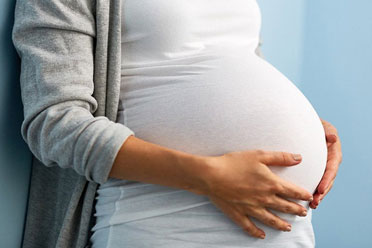High-Risk Pregnancy
Any pregnancy with possible difficulties that could impact the mother's or the unborn child's health or well-being is considered high-risk. Healthcare professionals must keep a closer eye on these pregnancies and occasionally provide specialist care. Certain lifestyle choices, preexisting medical issues, or conditions that develop during pregnancy can all lead to high-risk pregnancies.
Maternal Health Conditions:
Chronic Conditions: Pregnancy can be complicated by conditions such as diabetes, high blood pressure, heart disease, kidney illness, and autoimmune disorders.
Infections: HIV, hepatitis, and urinary tract infections are among the illnesses that might endanger both the mother and the unborn child during pregnancy.
Blood abnormalities: Pregnancy risks are increased by illnesses such as anemia, sickle cell disease, or clotting abnormalities.
Conditions Arising During Pregnancy:
Preeclampsia: A disorder characterized by elevated blood pressure and urine protein. It can result in eclampsia, a dangerous and potentially fatal illness, if left untreated. Gestational Diabetes:Diabetes that develops during pregnancy and raises the risk of preterm birth, preeclampsia, and high birth weight is known as gestational diabetes. Placenta Previa:A condition known as placenta previa occurs when the placenta covers the cervix, which can lead to bleeding and make delivery more difficult. Multiple Pregnancy: Preterm birth, low birth weight, and pregnancy-related problems are all increased when twins, triplets, or higher-order multiples are present.
Lifestyle and Age Factors:
Maternal Age: The risk of problems is higher for women under the age of 17 and those over 35.
Lifestyle Decisions: Preterm birth, low birth weight, and developmental problems in the fetus are associated with smoking, drinking, and using drugs during pregnancy.
Past Pregnancy Issues: A history of miscarriage, premature delivery, or a high-risk pregnancy may make future pregnancies more likely.
.png)
